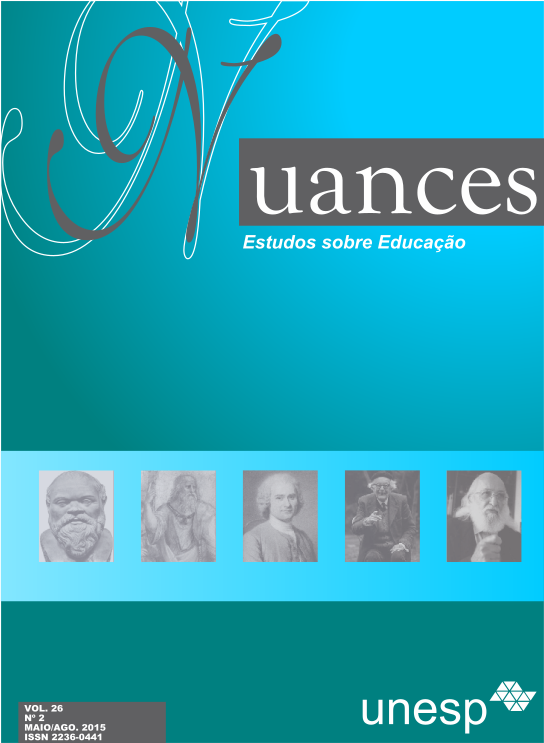SPACE WHERE TOYS IN EARLY CHILDHOOD EDUCATION
DOI:
https://doi.org/10.14572/nuances.v26i2.3349Keywords:
Childhood play development, Play, Early Chilhood Education, Historic-Cultural PsychologyAbstract
The aim of this article is to verify how a type of spatial arrangement, the role-playing scenarios, in the early Early Childhood Education (ECE), impacts the play, enhancing development processes of preschoolers. The analysis was conducted based on studies of Historical-Cultural Psychology on play. For this theory play is the development activity guide the preschool child and the more the child knows the world and the relationships between people, the richer the imaginary situation created in jest. We carried out 15 play sessions with children under five years of a public school in ECE, where we build, together with them, several role-playing scenarios. The results indicate that the scenarios were constituted as support for the imaginary situation, extending it and enabling the development of new themes and the argument to the play. We also discuss how these changes may impact on developing training phase in preschoolers.
Downloads
Downloads
Published
How to Cite
Issue
Section
License
Atribuição-NãoComercial
CC BY-NC
Esta licença permite que outros remixem, adaptem e criem a partir do seu trabalho para fins não comerciais, e embora os novos trabalhos tenham de lhe atribuir o devido crédito e não possam ser usados para fins comerciais, os usuários não têm de licenciar esses trabalhos derivados sob os mesmos termos.





